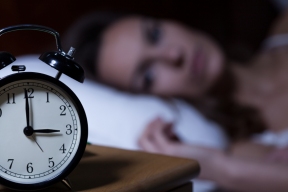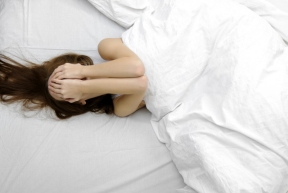
It is a frustratingly common scenario: You fall asleep easily at bedtime but are wide awake at 2 or 3 in the morning. Only after a half-hour or more of staring at the ceiling can you finally fall back to sleep. This middle-of-the-night insomnia happens to everyone every once in a while. It is an appropriate, normal response to stress, doctors say. But for a significant number of people it can become a chronic disorder. In fact, this type of insomnia is the most common, more so than having trouble falling asleep at bedtime.

About 30 percent of American adults have symptoms of some sort of insomnia each year, according to scientific studies. Chronic insomnia is generally defined as having difficulty sleeping at least three times a week for three months or more. Chronic problems falling asleep at bedtime are often associated with stress and anxiety, says Michael Perlis, director of the Behavioral Sleep Medicine Program at the Perelman School of Medicine at the University of Pennsylvania. Waking up too early is often linked to depression. Either type of insomnia can be caused by a circadian rhythm disorder, where there is a mismatch between one’s biological clock and normal sleep times.

Middle-of-the-night awakenings can be caused by medical conditions like sleep apnea, chronic pain or gastroesophageal reflux disease (GERD). Older adults are more likely to wake up overnight. Hot flashes from menopause and some prostate conditions that cause frequent urination can drive people out of bed. The best thing to do to prevent an occasional bout of middle-of-the-night insomnia from turning into a chronic problem seems simple: “Nothing,” says Dr. Perlis. “Don’t sleep in. Don’t nap. Don’t go to bed early the next day and everything will turn out fine.”








